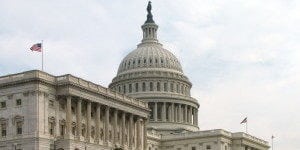
RadWaste Monitor Vol. 13 No. 45
Visit Archives | Return to Issue PDF
Visit Archives | Return to Issue PDF
RadWaste & Materials Monitor
Article 1 of 10
November 20, 2020
Pro-Nuclear Bill Senate Bill Has Reporting Requirement for Waste Inventory

A bipartisan group of U.S. senators introduced a bill that would require the Department of Energy secretary to present an annual report on the U.S. inventory of spent nuclear fuel and high-level radioactive waste.
Starting in January 2022, the American Nuclear…
Partner Content